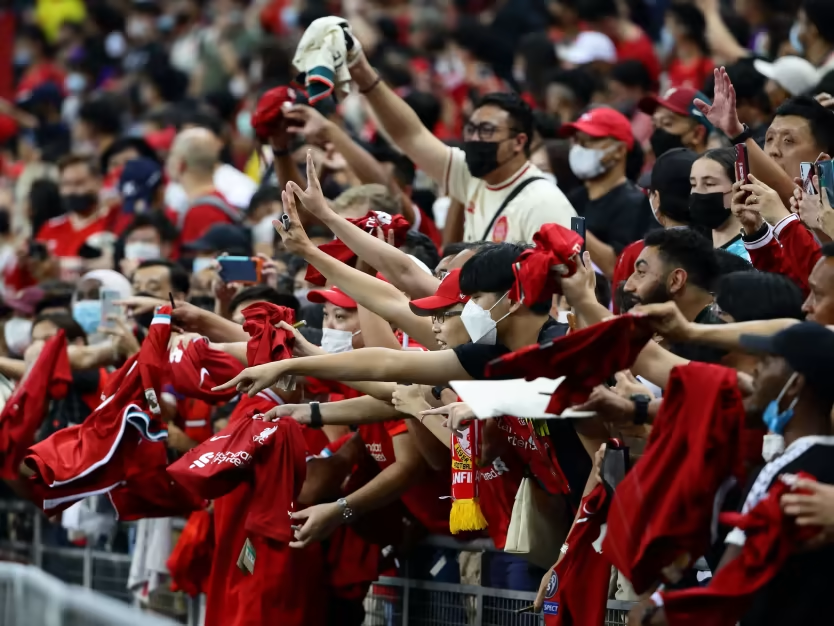11 Players, 3 Subplots, and 90 Minutes of Chaos: Why We Obsess Over the Game
It’s the 89th minute, the score is 1-1, and there

It’s the 89th minute, the score is 1-1, and there are 50,000 souls counting to their breath in unison. The ball hangs suspended in mid-air for what feels like an eternity before crossing the line. One half of the crowd is in ecstasy, the other half is devastated. But that is what is really interesting, you have just witnessed the denouement of three simultaneous dramas that have been unfolding over the past 90 minutes.
Football isn't a sport. It's drama, psychology experiment, and war between tribes all rolled into one. And when you know the three subplots that drive every game, you'll never watch the game the same way again.
The Personal Stakes: Individual Drama Within the Collective
Every match contains eleven unique human stories, each with private meaning that reaches far beyond the pitch. You're not just watching a forward attempt a shot – you're watching a person's career moment, a person's redemption arc, or possibly their downfall.
Think about the goalkeeper in his first Premier League game. His parents are in attendance, having driven four hours to see their son fulfill a boyhood aspiration. Not every save is merely stopping a goal; it's affirming years of hardship, early morning training runs, and believing in something that does not seem possible. When he makes that big stop in the 67th minute, you're not observing physical ability; you're witnessing someone's life alter before your eyes.
This personal touch is what converts intermittent viewers into lifelong followers. The football fan networks within different areas have developed a sophisticated method of following such individual narratives through entire seasons. For the UK, devoted networks like sistersites.org.uk help fans follow these shifting narratives, connecting fans who understand that with every stat there is a human behind it, with everything to prove.
The drama is in the intersection of these personal dramas. The injured defender returns, facing up to the teammate who replaced him. The veteran midfielder has his final match of a storied career, passing the captain's armband to a player half his experience. These are not Hollywood scriptwriting: these are human moments playing out in the strongest possible light.
The Chess Match: Tactical Warfare in Real-Time
As you are drawn into individual narratives, there is another game playing out entirely, a war of intelligence between two masters trying to outwit each other over 90 minutes.
Contemporary football technique is highly advanced. When you watch a team change from 4-3-3 to 3-5-2, you're witnessing planned psychology at play. The manager's not merely shuffling the pieces about; he's taking advantage of vulnerabilities, counteracting risks, and laying down traps that may not strike for another 20 minutes.
But what makes tactical football so great is that even the most carefully crafted plans can fall apart in an instant. That beautifully constructed pressing regime that played 60 minutes of total dominance? One red card and it's all undone. The defensive plan that neutralized the opposing team's biggest star? A single substitution can make it irrelevant.
You don't have to know the ins and outs of inverted fullbacks or false nines to love this subplot. What is important is to realize that each change of formation, each substitution, each tactical maneuver is a risk calculated with enormous payoffs. When Manchester City's Pep Guardiola substitutes five players at halftime, he is not conceding defeat; he's taking a gamble on an entirely new strategy toward the same issue.
The Tribal Identity: Us Against the World
The third subplot resonates with something elemental within human nature, being a part of something greater than ourselves.
When you choose a football club, you're not so much choosing entertainment; you're joining a tribe with its own colours, song, rituals, and most importantly, foes. This tribalism extends past the 90 minutes of matchday experience. It doesn't feel simply good to win; it validates your choice, your allegiance, your time, and emotional investment.
What's fascinating about tribalism in football is how it turns such constructed divisions into genuine emotional investments. Two sets of fans, typically from the same city, singing different songs and wearing different colours, with completely opposite emotions based on where a bit of hide happens to travel. But this constructed division creates genuine connections, genuine community, and genuine meaning for tens of millions.
Psychology is more than a question of team loyalty. Multi-generational loyalty is handed down from generation to generation as sure as DNA. Your granddad adored Liverpool, your father adored Liverpool, and you adore Liverpool, not through rational consideration, but because identity isn't rational. It's tribal.
The Chaos Factor: Why Unpredictability Hooks Us
That's what makes football different from other entertainment: genuine unpredictability within a framework.
Leicester City's 2015-16 Premier League title is the perfect example of this maxim. Hailed as 5000-to-1 favorites at the beginning of the season, their championship was not only improbable, it was statistically ridiculous. But still, it happened, demonstrating that in football, David can indeed slay Goliath if the variables are right.
This uncertainty compels you to watch despite reason informing you of what the outcome will be. That 89th-minute equaliser doesn't just change the score, it assures you that you were justified in keeping faith going when everyone else had given up.
New technology has brought new levels to all of this drama. VAR decisions have the power to overturn what seemed absolute, creating fresh drama from events that were believed to be over. These interactions with technology don't reduce uncertainty; they relocate it, creating fresh pauses in suspense where everything hangs in the balance.
The Addiction Explained
And why do we return week after week, year in, year out, investing emotional capital into outcomes beyond our own making?
Because football provides something so badly lacking in modern life: genuine uncertainty with real stakes. Every game promises the possibility of witnessing something historic, something that will be replayed and argued about for decades. You're not just watching a contest, you're living through communal cultural moments that establish community and create enduring memories.
That 89th-minute scenario we started with? It's not really about the goal. It's about being caught up in something unpredictable, tribal, and very human. And that's why, fully aware of the emotional rollercoaster we have ahead, we'll be back next week, looking forward to experiencing those three subplots once again.







